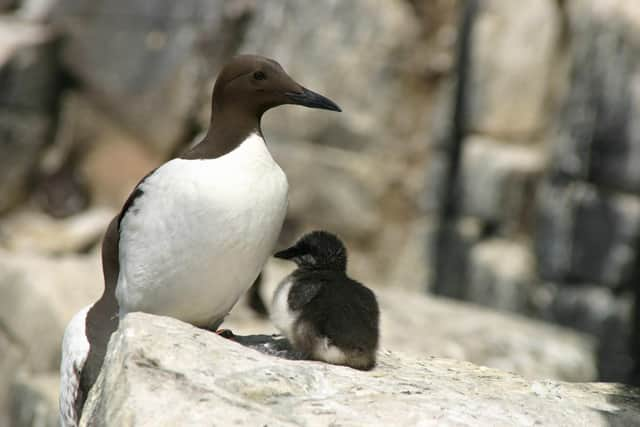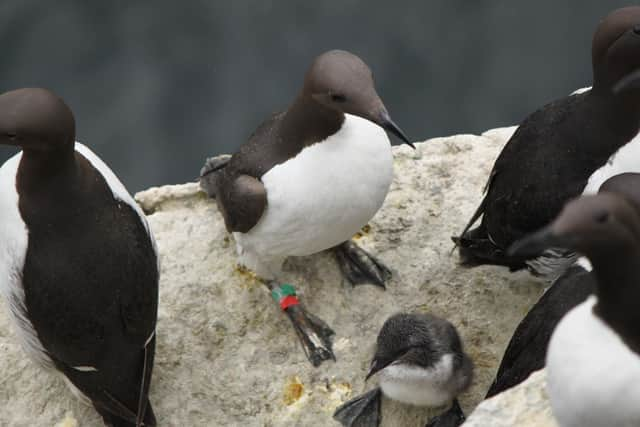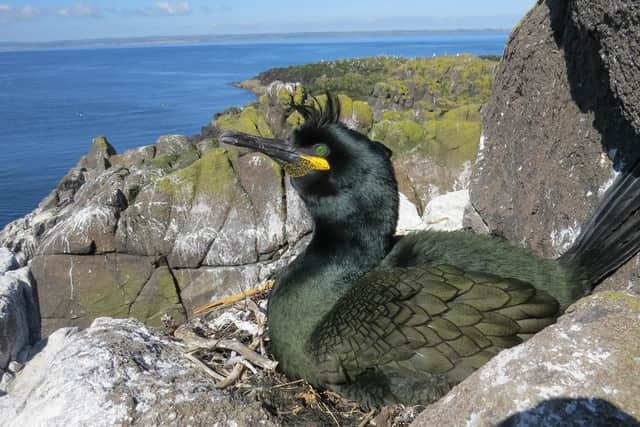Climate change hitting seabirds in Scotland and northern oceans hardest
Studies of 67 seabird species across the globe, including kittiwakes, puffins and shags, show a downward spiral in the number of chicks raised by fish-eating seabirds in the north.
The scientists have concluded that the rate of warming in northern oceans, which is faster than south of the equator, is having a dramatic impact on their survival.
Advertisement
Hide AdAdvertisement
Hide AdThey also suggest that the impact of human activities such as overfishing and rising plastic pollution are exacerbating declines.


The research project analysed breeding success of colonies including those based on Scottish islands.
The fortunes of some of Scotland’s most iconic species - guillemots, razorbills, puffins, shags, black-legged kittiwakes and northern fulmar - was charted using data collected over more than 30 years on the Isle of May, in the Firth of Forth.
Meanwhile, records going back almost 50 years revealed how populations of great skuas; Arctic skuas; arctic terns and black-legged kittiwake have been faring on Foula, in Shetland.


The researchers found declines were apparent in several species at both sites, but these were most severe on Foula, in the far north.
However, European shags in the Forth have been bucking the trend, which experts believe is down to their more diverse diet.
Most UK seabirds rely on small fish to feed their young, while several – such as kittiwakes and terns – are surface feeders.
The academics fear the survival of these seabirds is particularly at risk if warming continues.
Advertisement
Hide AdAdvertisement
Hide Ad

Dr Francis Daunt, of the Scottish-based UK Centre for Ecology & Hydrology, was part of the international study team.
“Seabirds are sensitive to environmental disturbances and are therefore acting as canaries in the coalmine, alerting us to the deteriorating health of ocean ecosystems,” he said.
“Their plight also indicates other organisms within the marine food web, including fish, marine mammals, large invertebrates and plankton, may also be struggling.
“More research is needed to understand why some species are doing better or worse than others.
“Continued long-term monitoring of seabird populations and further global-scale assessments such as our study are essential to inform effective conservation action.”
Study leader William Sydeman, from the Farallon Institute in the US state of California, said: “Seabirds can handle short-term declines in breeding success, but when breeding success becomes chronically poor, that’s not good,”
As climate warming alters ocean habitats, the locations of temperature zones in which various food sources thrive can shift away from seabird breeding sites.
That’s when the birds suffer.
However, the team says long-term degradation of marine ecosystems is a more insidious problem and affects many other species as well as seabirds.
Advertisement
Hide AdAdvertisement
Hide AdMr Sydeman added: “What’s also at stake is the health of fish populations such as salmon and cod, as well as marine mammals and large invertebrates, such as squid, that are eating the same small forage fish and plankton that seabirds eat.
“When seabirds aren’t doing well, this is a red flag that something bigger is happening below the ocean’s surface, which is concerning because we depend on healthy oceans for quality of life.”
A message from the Editor:
Thank you for reading this article. We’re more reliant on your support than ever as the shift in consumer habits brought about by coronavirus impacts our advertisers.
If you haven’t already, please consider supporting our trusted, fact-checked journalism by taking out a digital subscription.
Comments
Want to join the conversation? Please or to comment on this article.
